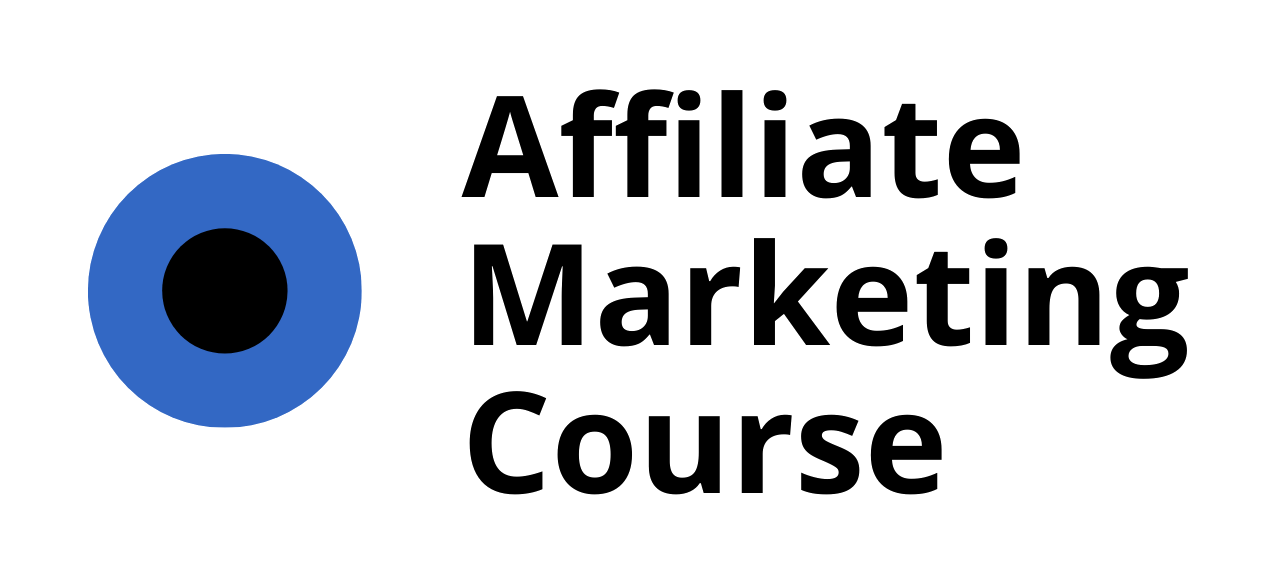As the digital landscape continues to evolve, building a successful online presence has become increasingly crucial for individuals seeking financial freedom and personal fulfillment. One of the most promising opportunities in this space is affiliate marketing, which allows entrepreneurs to monetize their influence and expertise by promoting products or services from reputable companies. However, navigating the world of affiliate marketing can be daunting, especially for those new to the field.

Best Skill for Affiliate Marketing
Digital marketing is a crucial skill for affiliate marketing success, encompassing various aspects such as content creation, social media management, email marketing, and paid advertising.
- Content Writing: Developing high-quality, engaging content is vital for affiliate marketing, as it helps attract and retain a clearly defined audience. Effective content writers can create compelling product reviews, tutorials, and guides that drive conversions.
- Analytics: Understanding website analytics is essential for tracking affiliate marketing campaigns’ performance, identifying areas for improvement, and optimizing strategies for better results.
- Negotiation and Communication Skills: Building strong relationships with merchants, negotiating commission rates, and communicating effectively with customers are critical skills for affiliate marketers.
- SEO Optimization: Search engine optimization techniques help increase website visibility, drive organic traffic, and boost affiliate marketing efforts.
- Email Marketing: Crafting effective email campaigns can help nurture leads, promote products, and drive sales, making email marketing a valuable skill for affiliate marketers.
- Social Media Management: Leveraging social media platforms to promote products, engage with audiences, and build brand awareness is a vital aspect of affiliate marketing.
- Paid Advertising: Running targeted ads on platforms like Google AdWords, Facebook Ads, and LinkedIn Ads can significantly enhance affiliate marketing campaigns’ reach and revenue.
- Web Development: Having basic web development skills can help create a professional-looking website, optimize its performance, and ensure seamless integration with affiliate programs.
- Customer Service: Providing excellent customer service is crucial for building trust, resolving issues, and driving repeat business, making it an essential skill for affiliate marketers.
While these skills are not exhaustive, they provide a solid foundation for affiliate marketing success. By focusing on developing these skills, you’ll be well-equipped to navigate the affiliate marketing landscape and achieve your goals.
Is Affiliate Marketing a Digital Skill?
Affiliate marketing is indeed a digital skill that requires a combination of knowledge, strategy, and technical expertise.
- Digital Marketing Fundamentals: Understanding digital marketing principles, including search engine optimization (SEO), pay-per-click advertising (PPC), email marketing, and social media marketing, is essential for success in affiliate marketing.
- Online Consumer Behavior: Knowing how to analyze and understand online consumer behavior, including their preferences, needs, and pain points, is crucial for identifying profitable niches and creating effective marketing campaigns.
- Digital Tools and Platforms: Proficiency in using digital tools and platforms, such as website builders, email marketing software, and analytics tools, is necessary for managing and optimizing affiliate marketing campaigns.
- Content Creation and Promotion: Creating high-quality, engaging content and promoting it effectively through various channels, including social media, email marketing, and influencer partnerships, is critical for driving traffic and sales.
- Data Analysis and Optimization: Analyzing campaign data and making data-driven decisions to optimize and improve affiliate marketing efforts is essential for achieving long-term success.
Key Skills Required for Affiliate Marketing Success
- Keyword Research and Optimization
- Email Marketing and Automation
- Social Media Marketing and Management
- Content Creation and Repurposing
- Analytics and Data Analysis
Becoming a Skilled Affiliate Marketer
To become a skilled affiliate marketer, it’s essential to continuously educate yourself on the latest digital marketing trends, strategies, and best practices. Stay up-to-date with industry news, attend webinars and conferences, and participate in online communities and forums to network with other affiliate marketers and stay informed.
By mastering these digital skills and staying ahead of the curve, you’ll be well on your way to achieving success in affiliate marketing and building a lucrative online business.

Getting Started with Affiliate Marketing
I’m excited to share my knowledge with you on how to get started with affiliate marketing.
-
Choose a Niche
-
Research Affiliate Programs
-
Create a Website or Social Media Presence
-
Produce High-Quality Content
-
Build an Email List
-
Utilize Paid Advertising
-
Track and Optimize Performance
-
Comply with FTC Guidelines
Pick a niche that you’re passionate about and has a large audience. Research popular products and services in your chosen niche to find potential affiliate programs.
Look for affiliate programs that offer high commission rates, reliable tracking, and a user-friendly interface. Some popular affiliate programs include Amazon Associates, ShareASale, and ClickBank.
You’ll need a platform to promote your affiliate links. Create a website or social media presence that aligns with your niche and target audience.
Develop a content strategy that includes product reviews, tutorials, and other valuable content that attracts and engages your target audience.
Collect email addresses from your website visitors and send targeted promotional emails to encourage sales and increase conversions.
Consider running paid ads on platforms like Facebook, Google AdWords, or native advertising to reach a wider audience and drive traffic to your website.
Monitor your affiliate earnings, click-through rates, and conversion rates to identify areas for improvement and optimize your campaigns accordingly.
Familiarize yourself with the Federal Trade Commission (FTC) guidelines on affiliate marketing disclosure and ensure transparency in your promotions.
Affiliate Marketing Tips for Beginners
-
Start small and scale up your efforts gradually.
-
Focus on building a loyal audience rather than just chasing commissions.
-
Be patient and persistent – affiliate marketing success takes time.
-
Stay up-to-date with industry trends and best practices.
-
Continuously evaluate and improve your strategies to maximize results.
Conclusion
Affiliate marketing offers a lucrative opportunity for those willing to put in the effort. By following these steps and tips, you’ll be well on your way to building a successful affiliate marketing business.

Is Affiliate Marketing a Skill or Business?
Affiliate marketing is often misunderstood as a simple way to earn money online, but in reality, it requires a combination of skills and business acumen.
-
Skillset Required
- Understanding of digital marketing principles
- Ability to create high-quality content
- Knowledge of analytics tools and tracking software
- Skills in social media management and advertising
- Familiarity with email marketing and automation
-
Business Aspects
- Developing a unique value proposition
- Creating a professional website and branding
- Building relationships with product vendors and merchants
- Managing finances and accounting
- Staying up-to-date with industry trends and regulations
-
Key Differences
- Affiliate marketing as a skill focuses on individual abilities and expertise
- Affiliate marketing as a business involves managing a company, team, and operations
- While skills can be learned and improved, building a successful affiliate marketing business requires dedication and perseverance
-
Conclusion
- Niche: Choosing a profitable niche is crucial for success in affiliate marketing. Some popular niches include health and wellness, finance, technology, and gaming.
- Audience Size: Building a large and engaged audience is essential for generating significant revenue. Affiliates with smaller audiences may struggle to reach a wider audience and increase sales.
- Conversion Rates: Conversion rates refer to the percentage of visitors who complete a desired action, such as making a purchase or signing up for a service. Higher conversion rates lead to increased earnings.
- Commission Structures: Commission rates vary among affiliate programs, ranging from 5% to 50% or more per sale. Choosing programs with competitive commissions is vital for maximizing earnings.
Affiliate marketing is a complex field that demands a mix of technical skills and business savvy. By understanding the differences between a skill and a business, you can better navigate the affiliate marketing landscape and achieve success.
At Affiliate Marketing Course, we offer comprehensive training and resources to help you develop the skills and knowledge needed to succeed in affiliate marketing.
Whether you’re just starting out or looking to take your affiliate marketing business to the next level, our course has everything you need to get started.
From beginner-friendly tutorials to advanced strategies and techniques, our course covers it all.
So why wait? Enroll in our course today and start building your affiliate marketing empire!
How Much Do Affiliate Marketers Make a Month?
The amount of money affiliate marketers can earn varies widely depending on several factors, including their niche, audience size, conversion rates, and commission structures.
Income Potential for Affiliate Marketers
While there’s no guaranteed income for affiliate marketers, some successful affiliates have reported earning:
- $10,000 to $20,000 per month
- $50,000 to $100,000 per month
- $200,000 to $500,000 per month
Factors Affecting Income Potential
Several factors influence an affiliate marketer’s income potential, including:
- Experience: Seasoned affiliates tend to perform better due to their understanding of marketing strategies and audience engagement.
- Content Quality: High-quality content attracts and retains a larger audience, increasing the chances of conversions and sales.
- Marketing Strategies: Effective marketing tactics, such as email marketing, social media advertising, and influencer partnerships, contribute to increased revenue.
- Product Selection: Promoting high-demand products with competitive commission rates can significantly impact earnings.
Conclusion
Affiliate marketing offers a lucrative opportunity for those willing to invest time and effort into building a successful online presence. By choosing a profitable niche, building a large audience, optimizing conversion rates, and selecting programs with competitive commissions, affiliate marketers can potentially earn substantial incomes.

Is Affiliate Marketing Hard?
As someone who has been in the affiliate marketing space for a while now, I can confidently say that it’s definitely not easy.
- First and foremost, affiliate marketing requires a lot of effort and dedication.
- You need to have a solid understanding of the market, the products you’re promoting, and your target audience.
- You also need to be willing to continuously learn and adapt to changes in the market and consumer behavior.
The Challenges of Affiliate Marketing
- Niche Selection: Choosing the right niche is crucial in affiliate marketing. You need to select a niche that you’re passionate about and has a large enough audience to generate significant revenue.
- Content Creation: Creating high-quality content is essential in affiliate marketing. You need to produce content that resonates with your audience and encourages them to take action.
- Building Trust: Building trust with your audience takes time and effort. You need to establish yourself as an authority in your niche and demonstrate your expertise.
- Competition: Affiliate marketing is a competitive space, and you need to differentiate yourself from others in order to stand out.
Why Affiliate Marketing is Worth It
Despite the challenges, affiliate marketing can be a highly rewarding venture.
- Passive Income: With affiliate marketing, you can earn passive income by promoting products and services that align with your values and interests.
- Flexibility: Affiliate marketing offers flexibility in terms of work schedule and location. You can work from anywhere and at any time as long as you have a stable internet connection.
- Potential for High Earnings: Successful affiliate marketers can earn significant amounts of money, often exceeding $100,000 per month.
Getting Started with Affiliate Marketing
If you’re interested in getting started with affiliate marketing, here are some steps you can take:
- Choose a Niche: Select a niche that you’re passionate about and has a large enough audience to generate significant revenue.
- Research Products: Research products and services that align with your niche and offer high commissions.
- Create Content: Create high-quality content that resonates with your audience and encourages them to take action.
- Build an Audience: Build an audience by establishing yourself as an authority in your niche and demonstrating your expertise.
Conclusion
Affiliate marketing is not easy, but it can be a highly rewarding venture for those who are willing to put in the effort and dedication required.
By choosing the right niche, creating high-quality content, building trust with your audience, and differentiating yourself from others, you can succeed in affiliate marketing and earn significant amounts of money.

0 Comments